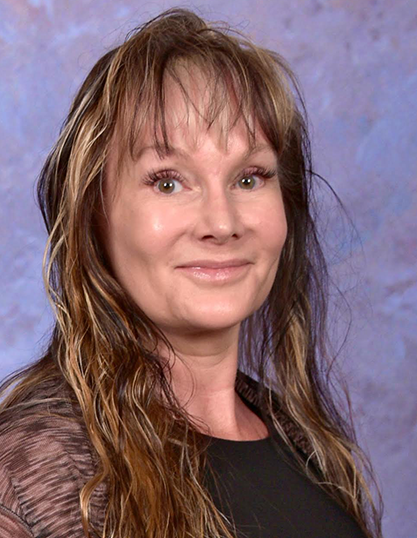10 Questions to Ask Before Choosing a Reverse Mortgage
A reverse mortgage allows you to take out money from your home to use as you like. However, unlike an equity take-out mortgage, you’re not required to make any payments on the loan until you or your estate sells the home. As you can imagine, it’s a great option for seniors to use the equity they’ve built up in their homes over the years to enjoy their retirement to the fullest without having to sell.
If you’re thinking about taking a reverse mortgage out on your home, it’s essential to talk with a mortgage broker who specializes in seniors first. A reverse mortgage, just like any major financing, is a decision that should be made with all the right information on hand. It’s important to fully understand how a reverse mortgage works in Canada, what it entails, and whether it’s the best option for you. To ensure you’re making the right decision for your specific needs, here are a few key questions to ask your mortgage professional.
1. Am I eligible?
A reverse mortgage is only available to those who are 55 years and older in the whole of Canada. This means that all parties, whether listed on the title of the home or a spouse who isn’t listed, must be 55 years of age to be eligible. You must also qualify for sufficient funds to pay out your current mortgage, as a reverse mortgage is not available in the second position.
In addition to this, the home itself ought to meet certain conditions to be eligible. For example, the home must be registered as your primary residence. So, the first question you should ask a mortgage professional is whether or not you and your property meet all of the requirements for a reverse mortgage.
If you do not qualify for a traditional reverse mortgage, there are also private options that do not have an age requirement.
2. How much can I take out?
One of the key questions you should ask is how much equity you can take out from your home. With a standard reverse mortgage in Canada, you can access up to 55% of the equity in your home. To put this into perspective, if your home is currently valued at $1,000,000 in the market today, you may be eligible to access up to $550,000. The maximum amount you are allowed to borrow will depend on your age, the lender, the location of the property, the property type and your home’s appraised value. So, ensure you ask how much you can take out to determine if this is the best financing option available to you.
Additionally, there are three major reverse mortgage lenders in Canada, and only two of them are federally regulated Schedule 1 banks. Some lend a bit more than others, depending on the above criteria. A senior specialist broker can help you navigate the choices.
3. Will it limit other financing options?
A reverse mortgage could prevent you from taking out other types of loans. You may not be eligible to take out a HELOC, for example, or co-sign on a home for your children, even if your home has appreciated in value. This limitation arises from the fact that a reverse mortgage is designed to tap into the equity you’ve built up in your home, effectively converting it into cash flow for your retirement years. Another lender cannot predict what balance it might eventually accrue to.
To make an informed decision, it’s crucial to thoroughly understand any conditions and restrictions associated with obtaining additional financing in the future if you have a reverse mortgage. While this type of mortgage can provide valuable financial stability during retirement, it’s essential to weigh the potential limitations against your broader financial goals and needs. Always consult with a qualified reverse mortgage broker to ensure you’re making the right choice for your unique circumstances.
Of the three main reverse mortgage lenders in Canada, only one allows you to register a second mortgage behind the first charge on title (the reverse mortgage).
4. What appraiser and lender should I use?
Choosing the right appraiser and lender is a critical step when considering a reverse mortgage in Canada. The appraisal process is essential because it determines the market value of your home, which, in turn, affects how much you can borrow.
Typically, the lender or mortgage broker will take care of ordering the appraisal directly. This ensures an unbiased and accurate assessment of your home’s value. The lender will then calculate the precise amount they can lend you based on your eligibility, which is influenced by factors like your age, the property’s value, and current interest rates.
If you deal with the lender directly, they will order the appraisal directly, and even though you pay for it, you will never receive a copy. By having your broker order the appraisal rather than the lender, we can access and use it for whichever lender we decide to use. We can even change our minds without incurring another appraisal fee. If you’ve done this with the lender directly, you cannot pivot. They are unlikely to match any new rates offered by the other lenders because they know they ‘have’ you. If you are proceeding with a broker-ordered appraisal, we can simply have the appraisal re-directed and move to another lender at no further cost. This allows us to negotiate, if required, to have one match another’s rate.
There are three reverse mortgage lenders in Canada, and each offers different terms and borrowing limits. One lender may provide more favourable terms, but they might not be as generous in the amount they’re willing to lend, forcing you to consider the other. To navigate this unique landscape and find the best solution for your needs, consult with a mortgage broker who specializes in reverse mortgages, like us, at Seniors’ Lending Centre.
5. Do my heirs have to pay my mortgage?
As mentioned earlier, with a reverse mortgage, the loan amount plus interest becomes due when the home is sold. This means that your beneficiaries may be required to pay the mortgage in full. They typically will do this by either selling the home and using the proceeds to pay off the mortgage, or they can pay the mortgage with cash and keep the home. If they wish to keep the home but do not have the money to pay out the mortgage, other financing solutions may be available to them. This is identical to the process for any type of mortgage on your home, reverse or otherwise.
6. Are there any other fees I should know about?
You do not need to make any payments over the life of the loan. However, there are other costs you will need to cover when you enter into a reverse mortgage, such as the appraisal fee to complete a valuation, closing costs, and lawyer fees. You may also be required to pay broker fees, renewal fees, and prepayment penalties over the life of the loan. For clarity, it’s important to ask what you will need to pay out of pocket before you enter into the agreement.
7. What happens if my home is worthless?
If your home depreciates in value, there is no scenario under the policies of any of the three reverse mortgage programs where you would ever owe more than the value of your home. Other private reverse mortgage lenders might have different policies, but it is important to have them explained to you.
8. Are there alternatives to a reverse mortgage?
Depending on your needs, you may want to explore alternatives to a reverse mortgage. In the lending world, you can utilize home equity lines of credit (HELOCs) or home equity loans. If you want to try other options that don’t involve lending, you can consider downsizing to a more affordable home, seeking financial assistance programs, or consulting with a financial advisor to budget your current streams of income.
9. How does my creditworthiness affect a reverse mortgage?
Unlike traditional mortgages, reverse mortgages generally don’t consider credit scores or income when determining eligibility. Instead, they focus on factors such as your age, home value, and equity. This feature makes reverse mortgages accessible to retirees with limited income or less-than-perfect credit.
10. What happens if I need to move during retirement?
It’s vital to consider what happens if your living situation changes while you have a reverse mortgage, whether you need to relocate closer to family or move into a care facility. In such cases, the reverse mortgage will be due when the home is no longer your primary residence. You may need to sell the property and repay the loan balance, or your heirs may need to handle the repayment. Understanding the options available in these scenarios and planning for the potential need for relocation can help you make informed decisions regarding your reverse mortgage and overall financial strategy.
Taking the Next Step
The decision to pursue a reverse mortgage is a significant financial step that requires careful consideration of many factors. Remember, while these loans can offer valuable financial relief to seniors, they are not one-size-fits-all solutions. Evaluating your circumstances, long-term goals, and available alternatives is crucial before committing to any financial arrangement.
Interested in learning more about reverse mortgages? If you’re seeking personalized guidance, have further questions, or wish to explore your options in more detail, contact us at Seniors’ Lending Centre.




